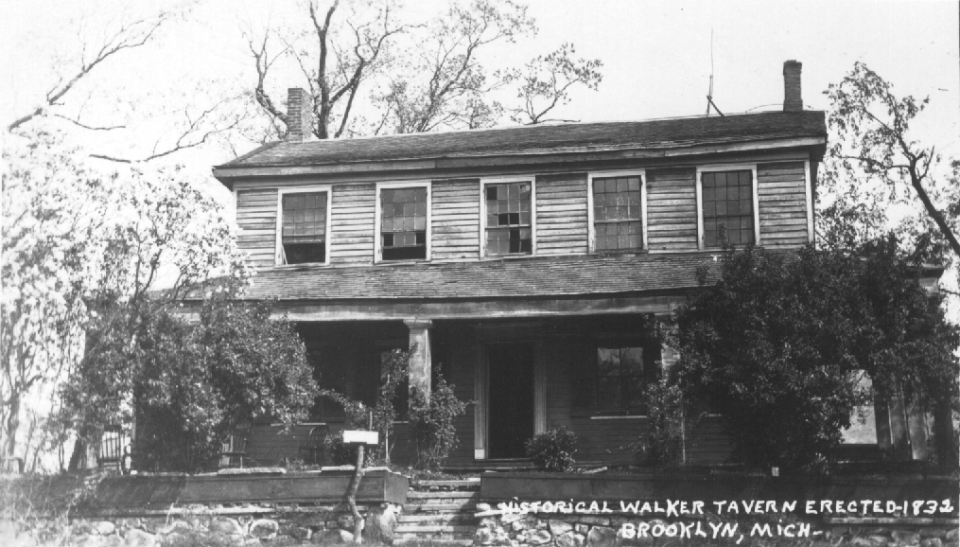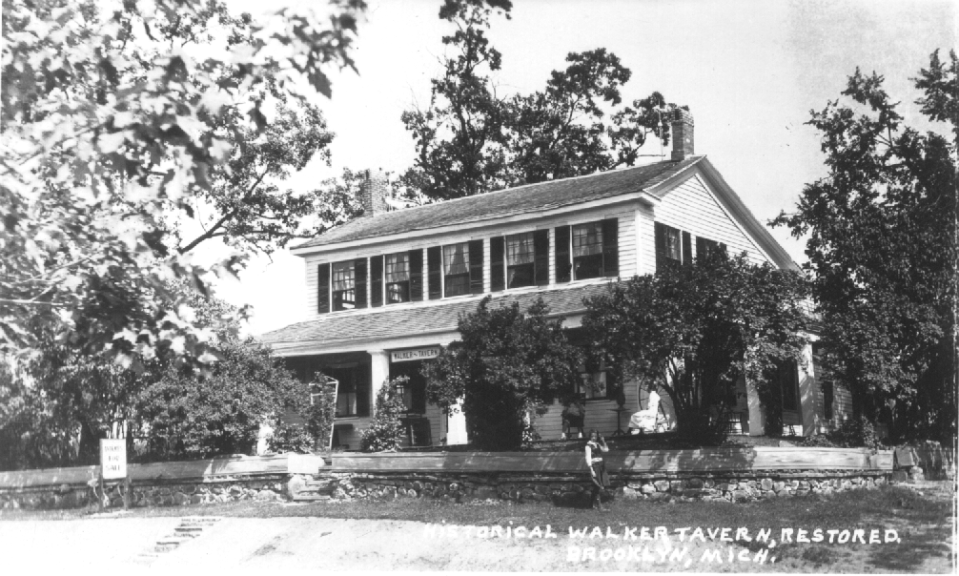Lenawee County history: Walker Tavern restored more than 100 years ago

The Historic Walker Tavern near the intersection of M-50 and U.S. 12 at Cambridge Junction has gone through a number of changes over the years, as the owners interpreted its historical look and significance.
The tavern complex was in deteriorated condition when the Rev. Frederick Hewitt of Detroit bought it in the fall of 1921. The tavern was built in 1832, during the “pioneer era” of Michigan territory’s history. Hewitt’s vision was two-fold: to restore the tavern to its “glory years,” and to set aside a part of the facilities for antique sales. Through the fall and winter into the spring of 1922, Hewitt transformed the old tavern into what he believed it looked like in the 1840s.

It was then Hewitt drew crowds to the tavern by sharing former tavern owner Sylvester Walker’s story of James Fenimore Cooper, where he had reported the famed author spent his summer, gathering information for “The Oak Openings.” Hewitt said Cooper and his entourage arrived in Detroit in June 1847 and, for reasons unknown, journeyed about 60 miles out of Detroit to spend the summer at Walker Tavern.
Cooper’s personal papers, according to the Fenimore Cooper Society, make no mention of Cooper spending most of the summer at Walker Tavern. While Cooper did journey to Michigan in June 1847, his papers state he was in Detroit for a “lawsuit against Gordon and Gibbs.” His journals, meticulous and specific day-to-day, show no diversion to the wilderness of Lenawee County. He is recorded as being in New York before and after his steamboat trip to Michigan.

Other oral history stories Hewitt relayed to visitors was that politician Daniel Webster stayed at Walker Tavern and a stain on the floor of one bedroom is that of a man murdered over a large sum of money he was carrying. While Webster is recorded as staying in Adrian, no primary research has surfaced that Webster also stayed the night at Walker Tavern. Another story reported that “at the far window at the east is a long bedroom called the suicide room, for in this a weary traveler for reasons unknown took his own life.”
Subscribe Now: For all the latest local developments, breaking news, and high school and college sports content.
Whether the stories had any basis in fact appeared to be of little importance to Hewitt; their intrigue helped draw people to the property and to his antique sales display. In all, Hewitt invested about $20,000 into the restoration work, to bolster tourism in the accelerating Irish Hills, and to promote the tales of days gone by.
— Dan Cherry is a Lenawee County historian.
This article originally appeared on The Daily Telegram: Lenawee County history: Walker Tavern restored more than 100 years ago

